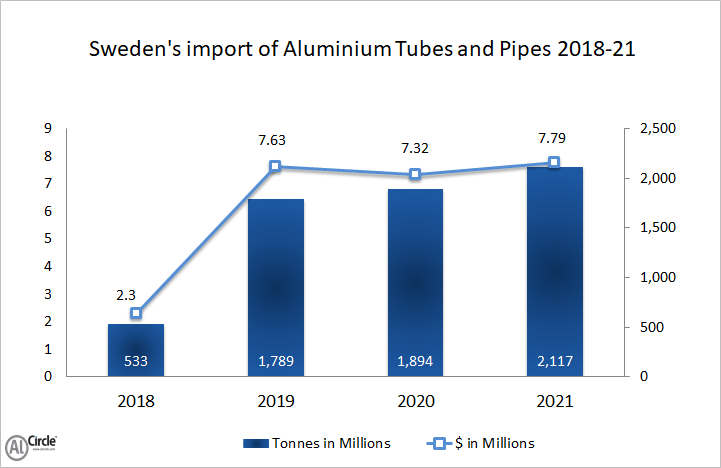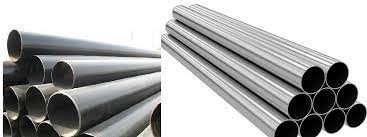

Aluminium is considered a remarkable metal for its low density and its features to resist corrosion through the passivation process. Aluminium tubing widens from consumer items, recreational merchandise and machine parts and automotive and manufacturing across an extensive range of industrial applications. However, suppliers respect aluminium for its strength and it is only one per cent of the steel weight. The metal exceptionally well absorbs heat making tubing a great material for temperature control applications such as refrigerators, solar power and air conditioning systems.

The Scandinavian nation, Sweden imported 4216 tonnes of aluminium tubes and pipes during 2018-20, which incurred revenue expenditure of around $17.25 million for the import.
In 2018, the Swedish import of aluminium tubes and pipes was recorded at 533 tonnes, with expenditure accounting for $2.30 million, whereas in 2019, the import reflected an enterprising growth by 235.64%, as the import volume surged to 1789 tonnes due to domestic market demand, driving the expenditure to climb at $7.63 million.

Sweden’s import of aluminium tubes and pipes in 2020, also reflects a further upswing of 5.86%, as the import volume escalates to 1894 tonnes, while the expenditure dropped to $7.32 million.
The import for 2021 is evaluated again with a demand rise of 11.77%, as the import volume is envisioned to grow and remain at 2117 tonnes, with expenditure to stand at $7.79 million.
The major importation destinations for Sweden’s import of aluminium tubes and pipes are Bosnia Herzegovina, Austria, Belgium, Czech Rep., China, Denmark, France, Germany, Greece, Italy, Netherlands, Poland, Romania, Spain, Turkey, etc.
Responses








